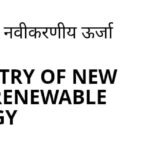CPCB-DPCC Finds Minimal Health Risks From Delhi’s Waste-To-Energy Units

The report also found that stack emissions from the facilities including suspended particulate matter and heavy metals such as nickel remain within prescribed limits
Delhi’s four waste-to-energy plants located at Okhla, Ghazipur, Bawana and Tehkhand are largely compliant with regulatory standards and pose minimal risks to public health and the environment, according to a joint assessment by the Central Pollution Control Board (CPCB) and the Delhi Pollution Control Committee (DPCC).
The report, filed before the Supreme Court and the National Green Tribunal, stated that all the plants operate with pre-processing systems that raise the calorific value of municipal waste above 1,500 kilocalories per kilogram. This is in line with the Solid Waste Management Rules, 2016, which mandate minimum calorific value thresholds for energy recovery.
The review also found that stack emissions from the facilities including suspended particulate matter and heavy metals such as nickel remain within prescribed limits. However, the Bawana plant recorded exceedances in dioxin, furan, and cadmium plus thallium levels, which were found to be above permissible norms.
The CPCB-DPCC study noted that while compliance across most parameters is encouraging, continuous monitoring remains essential to ensure that emission levels remain within safe limits, especially in light of public concerns over air quality and environmental safety in the capital.




































































































































































































































































































































































































































































































































































































































































































































































































































































































































































































































































































































































































